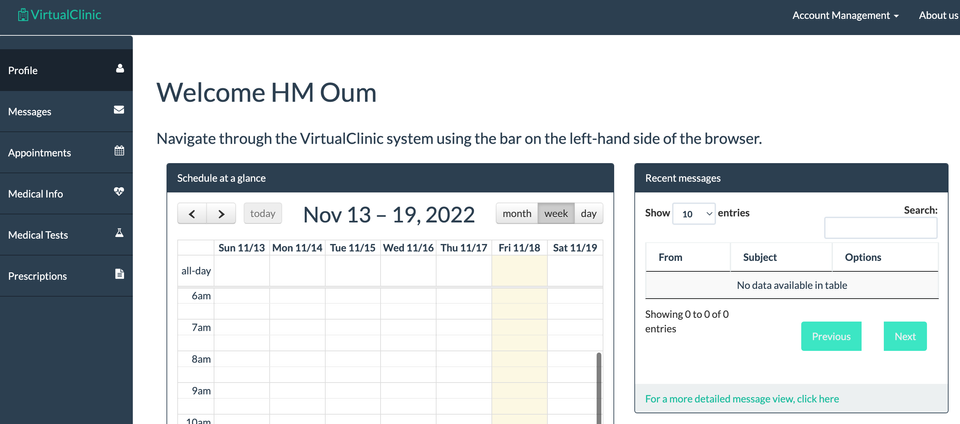VirtualClinic: An Open-Source Clinical Practice Management System
Virtual Clinic is a free open-source EMR and clinical practice management system for small and medium size clinics.
The project is written on top of the Django Web Framework, and can work with MySQL, PostgreSQL, SQLite, and Oracle.
Features
- Lightweight solution that does not require extensive system hardware.
- Dashboard for admins, doctors, and nurses.
- Offers a patient's dashboard.
- Appointment management.
- Supports multiple clinics and hospitals.
- Each user can manage his profile.
- Upload medical tests reports.
- Supports file attachments.
- Chemist and pharmacy management.
- Developer-friendly documentation.
- Patient registration.
What can the doctor do?
- Consult Appointments
- View/Update/Generate Prescriptions
- View Medical Information of patients
- Update Profile
- Change Password
What can the system admin do?
- Add Doctor/Lab/Chemist
- Archive Users
- Restore Archived Users
- Add/Delete Specialty/Symptoms
- Add Hospitals
- View Activity
- View System Statistics
- View/Send Messages
- Update Profile
- Change Password
Patient options
- Create Appointments
- Update Medical Information
- View Prescriptions
- View Medical Tests
- View/Send Messages
- Generate Invoice for Prescription
- Update Profile
- Change Password
Chemist
- Update Medicine Delivery Status(Update Prescriptions)
- View/Send Messages
- Update Profile
- Change Password
Lab
- Upload Medical Tests
- View/Send Messages
- Update Profile
- Change Password
License
The project is released as an open-source project under the MIT license.

